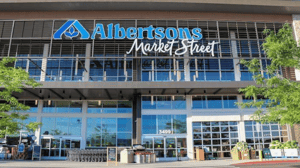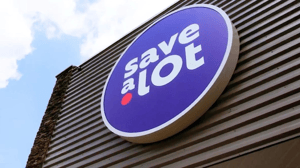6 words grocers added to their vocabulary lists in 20226 words grocers added to their vocabulary lists in 2022
Food retailers learned some new words this year, while some old terms took on renewed importance.


This is the fifth article in WGB’s Year in Review series. Check the site each day through Dec. 16 for a fresh look back at 2022 in the grocery industry.
It was a busy year in grocery, as consumers started returning to in-store shopping while still expecting the convenience of delivery and pickup.
Along the way, grocers in 2022 added some new words to their dictionaries—and some well-known words took on new significance.
Here’s a look back at the year’s big vocabulary words:
Inflation. If there was a 2022 word of the year, it would be this. Of course, retailers were well-acquainted with fluctuating food prices before Jan. 1, but inflationary pressures truly colored everything this year. Higher prices pushed higher-income shoppers to big-box retailers like Walmart. Inflation led more folks to seek out groceries from deep discounters and dollar stores. It changed consumer behavior, forcing them to buy fewer items each trip and trade down to private-label items. In an August earnings call for Walmart, the word “inflation” came up more than 60 times. We feel certain this is a word grocers would be happy to hear less of in 2023.
AI. Once the stuff of science fiction, artificial intelligence is very much becoming a reality in the grocery store. One could scarcely drive a shopping cart down the show floor of this fall’s Groceryshop conference in Las Vegas without hitting some sort of start-up promising to revolutionize operations via AI. Among the big players is San Francisco-based Afresh, which scored a $115 million investment earlier this year, for its AI-powered tool that helps with forecasting, inventory and ordering in the produce department. Albertsons signed on as a big customer.
SpinCo. When Kroger and Albertsons announced their $24.6 billion mega-merger in mid-October, we all learned this new word. It’s the name of the subsidiary Albertsons said it would establish as a standalone public company to operate the between 100 and 375 stores it plans to divest (or “spin off”) as part of the transaction. At the time, Albertsons said SpinCo will be a “new, agile competitor with quality stores, experienced management, operational flexibility, a strong balance sheet and focused allocation of capital and resources.” We still think they could’ve come up with a jazzier name, though.
Value-added produce. Shoppers are looking for value, to be sure. But with life returning to semi-normal after years of pandemic slowdown, they’re also looking for convenience. Grocers this year reported strong foodservice sales. In addition, though, suppliers are significantly boosting their pre-cut produce offerings to cater to shoppers looking for meal- and snack-ready items. Value-added fruits and vegetables made up 14.4% of total fresh product sales in 2021, according to FMI-the Food Industry Association. And 27% of those surveyed said they intend to buy more of it in the coming year.
Shrink. Theft has been an issue for retailers since retailers were created. But the issue appears to have reached a fever pitch in 2022. Regional grocer Wegmans in September ditched its scan-and-go payment option (and generated lots of shopper grumbling) because of high rates of theft. Target said it was losing hundreds of millions of dollars this year to organized retail crime. And Walmart’s CEO just this week said record-high theft could force the country’s largest retailer to raise prices or even close stores.
Smart cart. Everybody in 2022, it seemed, was looking to create a “seamless” shopping experience. We’ve yet to see widespread adoption of smart carts, but they’re certainly becoming more buzzed about. Kroger in October said it was testing a potentially “game changing” tech-savvy cart dubbed KroGo that includes a built-in scale and camera to help shoppers check out quickly. And Instacart, most well-known for its grocery-delivery operations, unveiled an updated version of its Caper Cart that features scales, sensors, touchscreens and computer-vision technology to let shoppers bag and go, no scanning needed.
About the Author
You May Also Like






